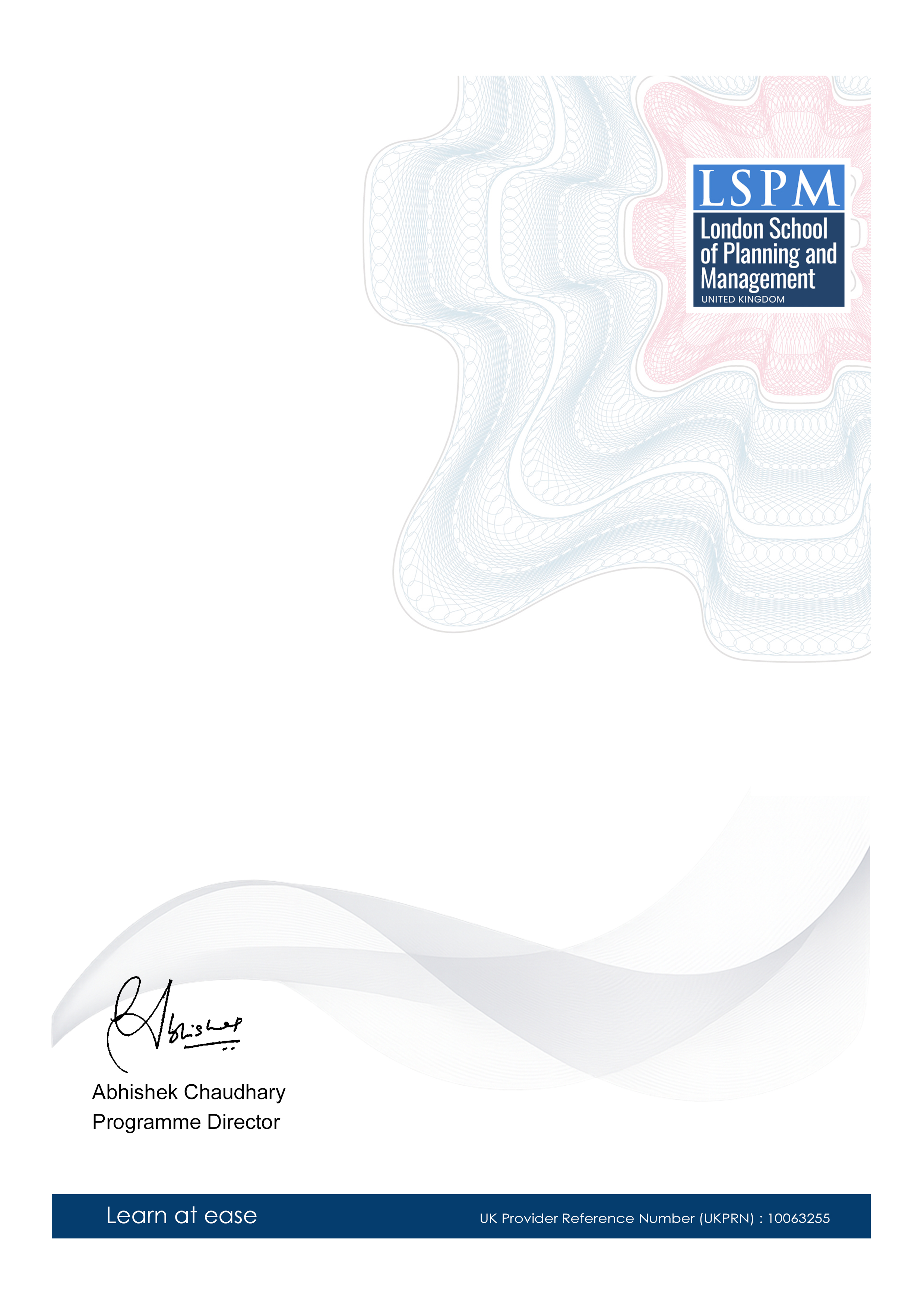Global Certificate Course in Humanitarian Technology and Data Analysis
-- viewing nowThe Global Certificate Course in Humanitarian Technology and Data Analysis is designed for individuals seeking to make a positive impact in the humanitarian sector. The course focuses on equipping learners with the skills needed to analyze and utilize data effectively in humanitarian contexts.
7,379+
Students enrolled
GBP £ 149
GBP £ 215
Save 44% with our special offer
About this course
100% online
Learn from anywhere
Shareable certificate
Add to your LinkedIn profile
2 months to complete
at 2-3 hours a week
Start anytime
No waiting period
Course details
Career path
Global Certificate Course in Humanitarian Technology and Data Analysis
The Global Certificate Course in Humanitarian Technology and Data Analysis is a comprehensive program designed to equip individuals with the skills required to work in the rapidly evolving field of humanitarian technology and data analysis. The course covers a wide range of topics, including data visualization, machine learning, cloud computing, and geographic information systems (GIS). Graduates of the program will be well-prepared to pursue careers in various humanitarian organizations, government agencies, and non-profits around the world.
Career Roles
Here are some of the career roles that graduates of the Global Certificate Course in Humanitarian Technology and Data Analysis can pursue:
- Data Analyst - Analyzes and interprets data to identify trends and patterns. Develops data visualizations to communicate insights to stakeholders.
- Machine Learning Engineer - Designs and implements machine learning models to automate data analysis processes. Develops algorithms to improve the accuracy and efficiency of predictive models.
- Cloud Computing Specialist - Manages and optimizes cloud-based infrastructure for data storage, processing, and analysis. Ensures data security and compliance with industry standards.
- GIS Specialist - Uses geographic information systems to analyze spatial data and create maps for decision-making purposes. Develops tools for data collection and visualization in support of humanitarian efforts.
Job Market Trends
The job market for professionals with skills in humanitarian technology and data analysis is growing rapidly, driven by the increasing demand for data-driven decision-making in the humanitarian sector. According to a recent report by Burning Glass Technologies, the number of job postings for data analysts with experience in humanitarian work has increased by 120% since 2015. Similarly, the demand for machine learning engineers and GIS specialists with humanitarian experience is also on the rise.
Salary Ranges
Salaries for professionals in this field vary depending on factors such as location, experience, and the type of organization they work for. However, according to Glassdoor, the average base salary for a data analyst in the UK is £32,000 per year, while a machine learning engineer can earn an average of £50,000 per year. GIS specialists can earn an average of £30,000 per year, while cloud computing specialists can earn up to £60,000 per year.
Skill Demand
Skills in data visualization, machine learning, cloud computing, and GIS are highly sought after in the humanitarian technology and data analysis field. Professionals who can demonstrate expertise in these areas will have a competitive edge in the job market.
Entry requirements
- Basic understanding of the subject matter
- Proficiency in English language
- Computer and internet access
- Basic computer skills
- Dedication to complete the course
No prior formal qualifications required. Course designed for accessibility.
Course status
This course provides practical knowledge and skills for professional development. It is:
- Not accredited by a recognized body
- Not regulated by an authorized institution
- Complementary to formal qualifications
You'll receive a certificate of completion upon successfully finishing the course.
Why people choose us for their career
Loading reviews...
Frequently Asked Questions
Course fee
- 3-4 hours per week
- Early certificate delivery
- Open enrollment - start anytime
- 2-3 hours per week
- Regular certificate delivery
- Open enrollment - start anytime
- Full course access
- Digital certificate
- Course materials
Get course information
Earn a career certificate

